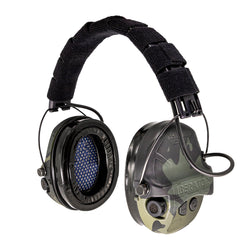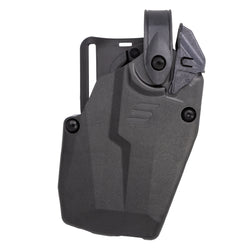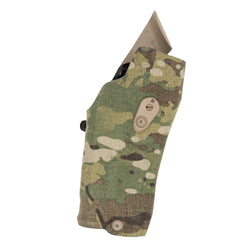In the realm of firearm ownership, meticulous record-keeping is a practice that cannot be overlooked. Owning a firearm is a significant responsibility, and part of that responsibility is maintaining comprehensive and accurate personal firearms records.
I know, you may not want to create records of your firearms, but guess what? Records already exist. Manufacturers document each gun they make and which retailer the firearm is sent to. Retailers also keep track of who they sell guns to thanks to our buddies at the ATF. I can’t count the number of times my agency has had to jump through hoops to find a serial number for the victim of a theft because they didn’t have it.
Why You Should Keep Personal Firearms Records
Whether for personal protection, hunting, or sport shooting, firearms represent a considerable investment and therefore, a potential liability. The importance of keeping detailed records of your firearms is for your own benefit. It also makes law enforcement’s job much easier.

It does this by providing a trail of ownership, aiding in the swift recovery of stolen property. In addition, having up-to-date records can expedite insurance claims and ensure that you receive adequate compensation.
If you have the records and don’t want to share them with anyone, then don’t. But if your guns are stolen or destroyed by a natural disaster, not having the info doesn’t help anyone.
In this article, we’re talking about why you should keep detailed records of your firearms. Each section will highlight practical steps and benefits, emphasizing the critical nature of this often-overlooked aspect of gun ownership.
Theft Recovery: Aiding Law Enforcement
One of the primary reasons to keep detailed firearms records is to assist in the recovery of stolen weapons. Firearms are a prime target for thieves due to their value and portability. In the unfortunate event that your firearm is stolen, having comprehensive records can significantly enhance the chances of recovery.
Detailed records should include the make, model, serial number, and any unique identifying features of the firearm. This information is crucial for law enforcement agencies in tracking and recovering stolen guns.
It’s frustrating when someone reports multiple stolen firearms to us and all we can put in the report is “Glock 19” or “Mossberg 500.” If we recover firearms we believe are stolen, we must prove who they belonged to before we can return them.

When reporting a theft, providing accurate and detailed information can make all the difference. Law enforcement agencies use the provided details to enter the firearm into national databases like the National Crime Information Center (NCIC). The more information you can provide, the higher the likelihood of your firearm being recovered and returned to you.
Without this information, the chances of recovery diminish significantly, leaving you without your valuable property. And no one wants the bad guys to get away with stealing your guns.
Insurance Claims: Ensuring Adequate Compensation
Another reason to maintain good firearms records is for insurance purposes. If you have purchased many firearms, you know how expensive they are. In the event of theft, damage, or loss, accurate records are necessary to process the claim. Most insurance companies require detailed information about the firearms to process claims effectively. This includes purchase receipts, photographs, and detailed descriptions of each firearm.
In the unfortunate event that you need to file an insurance claim, having thorough records will expedite the process and ensure you receive the appropriate compensation. Without these records, you might face delays or even denial of your claim. The best way to go about it is to keep a digital copy of your records, backed up in a secure location. We will talk more about how to keep good records in just a minute.
legal considerations
As I said earlier, no one likes records of their firearms. This stems from the Second Amendment and our right to own firearms without being infringed upon. But that doesn’t mean we can’t keep records for our own purposes.

Aside from theft and insurance reasons, maintaining records can protect you in legal situations at times. For instance, if a firearm you sold or transferred is later used in a crime, having documented proof of the sale can demonstrate that you are no longer the owner. Good documentation can be crucial in absolving you of liability*. This is just another reason to keep good records.
Estate Planning: Preserving Your Collection
For many firearm enthusiasts, their collection is more than just a hobby; it’s a valuable legacy. Keeping detailed records of your firearms is often important for real estate planning purposes. Accurate records will ensure that your collection is passed on according to your wishes, whether to family members, friends, or as part of a donation to a museum or club. These records provide a clear inventory that will help avoid disputes and confusion among heirs.
In addition to preventing potential legal battles, detailed records will help heirs understand the value and significance of each piece in your collection. This understanding can be particularly important if they decide to sell or donate some of the firearms.
maintaining your Personal Firearms Records
Keeping detailed personal firearms records is not just about legal and financial protection; it also plays a role in ensuring the safe and responsible use of firearms. Records can help track the usage and maintenance of each firearm, ensuring they are kept in optimal condition. I like to track how many rounds I fire through each gun, so I know when it’s time to change a barrel or replace springs and other components.

Some people own more guns than others, and while most people know exactly which guns they own, not all do. I once took a report from someone of a “theft” of several firearms. A few weeks later he called to report they had all been located. Turns out, none of them were stolen.
The owner had so many guns, he couldn’t remember where they all were. He had sold one, lent one to a friend, and placed others in various locations for home defense. Keeping a personal record would have saved time for everyone involved.
Effective Record-Keeping
Effective record-keeping requires a systematic approach. Start by creating a detailed log for each firearm you own. This log should at least include the following information:
- Make
- Model
- Serial Number
- Caliber
- Date of purchase
- Place of purchase
- Unique identifying features
Include photographs of each firearm, capturing any distinguishing marks or modifications. Keep copies of purchase receipts and any documentation related to the firearm. Many people throw away the box, manual, and other items the gun came with at the time of purchase. But if you decide to sell the gun, those items will help the gun sell.

Consider using digital tools to enhance your record-keeping. Several apps and software programs are specifically designed for firearm inventory management. These tools will help you organize your records, set reminders for maintenance, and securely store your data.
Ensure you back up your digital records regularly, preferably in multiple locations, such as an external hard drive or a cloud storage service.
If you want to use an old-fashioned record book, that’s fine too, just log the info somewhere. I use an app called “Home Contents” that allows me to customize each category. It was designed for anything in a home but works great for firearms as well. When my insurance agent needs an updated copy, I can send her a digital copy from my phone.
Most apps will allow you to store photos of the gun, maintenance records, insurance information, location (where you keep the gun), and more. If you’re skeptical, only document the info you are comfortable with.
If it’s not documented, you may not get it back
In the police academy, they frequently used the saying “If it’s not documented, it didn’t happen.” They were referring to report writing and how it can be viewed in court. But one could also say “If you don’t document it, you didn’t own it.”
It’s unfortunate that it works this way, but once something is stolen, there must be some type of proof it was yours. A receipt, a photo, an identifying mark, something. Keeping a good log of your firearms will help you keep everything you need in one place.
We hope to never need our personal firearms records, but in the event something does happen, you will be glad you have them. Keep whatever type of records you are comfortable with but take the step to document them. After the fact, will be too late.
*This article is meant for informational purposes only and should not be construed as legal advice.









